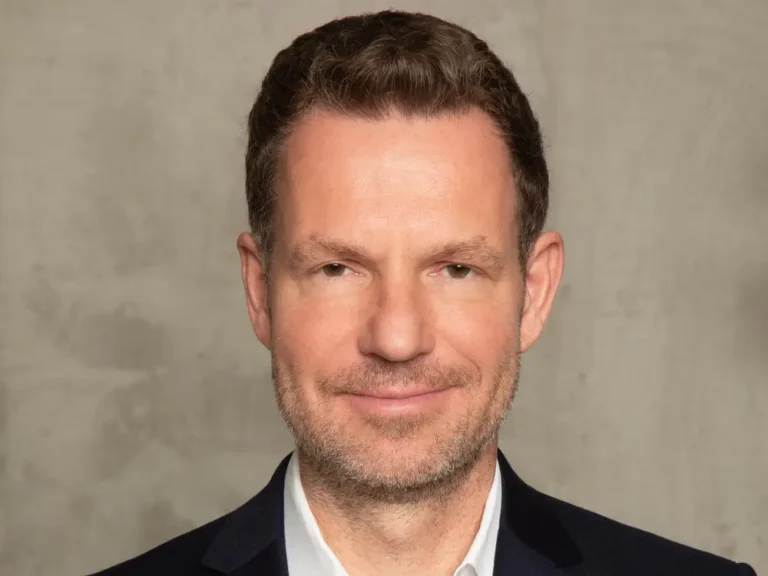How FaZe Clan’s future owner hopes to rein in pissed-off talent and build a sustainable influencer business

- Gaming and marketing firm GameSquare is set to buy esports brand FaZe Clan.
- FaZe has struggled with revenue diversification and backlash from some talent.
- GameSquare CEO Justin Kenna told Insider how he plans to turn FaZe into a sustainable business.
The company’s future owner intends to put one of its most vocal critics in charge as it attempts to turn around the embattled esports and influencer brand.
GameSquare, a marketing and gaming firm, is set to acquire FaZe at a significant discount to its $725 million valuation when the company went public in July 2022.
One of GameSquare’s first tasks will be to control FaZe’s influencer roster. Several of its top employees have taken to social media to protest the company in the last year.
Nordan “FaZe Rain” Shat began a series of YouTube videos in late 2022 criticizing FaZe’s leadership and spending decisions. Influencer Richard “FaZe Banks” Bengtson expressed his displeasure with the esports brand he helped launch in April, writing, “Idk what all these corporate fucks think they’re doing,” and requesting that they “give us our brand back.”
Rather than dismissing FaZe’s internal critics, GameSquare has appointed Bengtson as CEO. After the transaction is completed, the company intends to name him CEO of FaZe. He would co-manage the brand with Thomas “FaZe Temperrr” Oliveira, FaZe’s proposed president, and Yousef “FaZe Apex” Abdelfattah, FaZe’s COO.
GameSquare CEO Justin Kenna, a former CFO at FaZe, stated that he knew he needed FaZe talent to support the deal.
“It was actually extremely important to me that we had the backing and support of the founders, and that we got on the same page,” Kenna was quoted as saying by Insider. “These are the guys that created this brand and this audience in the first place.”
In response to the announcement of the deal on October 20, Bengston said on X, formerly Twitter, that he was “excited to have the keys again” and was “praying these partners are different.”
Even with talent on board, the road ahead for revitalizing FaZe’s business will be difficult.
According to company filings, revenue fell 30% in the first half of 2023 compared to the same period in 2022. FaZe laid off 20% of its workforce at the start of this year in order to achieve “increased financial discipline.” After its stock price fell below $1, Nasdaq threatened to delist the company. In the midst of these difficulties, the company fired CEO Lee Trink in September.
In a press release announcing the FaZe acquisition, GameSquare stated that it expects to save more than $18 million by eliminating “duplicate corporate costs” and other expenses as a result of the merger.
FaZe’s reliance on a few influencers has resulted in large revenue swings.
FaZe’s problems are exacerbated by a lack of revenue diversification. Despite efforts to increase revenue in areas such as esports competitions and FaZe-branded products, the company has relied heavily on brand sponsorships and ad-funded content to make money.
Kenna intends to diversify FaZe’s business by monetizing its intellectual property through licensing agreements and consumer products, as well as by leveraging existing GameSquare brand partners. Merchandising, influencer marketing, and streaming analytics are all subsidiaries of the company.
GameSquare will also need to broaden the pool of creators who contribute to FaZe’s bottom line. According to public filings, one creator accounted for roughly 18% of FaZe’s total revenue in 2022. In 2021, the same content creator was responsible for roughly 22% of the company’s revenue.
Kenna believes the brand’s other talent has the potential to generate additional revenue. FaZe had approximately 54 esports and gaming professionals across its various teams as of June.
“There’s a huge opportunity to monetize a lot of the other talent that have huge audiences that aren’t being monetized to the full currently,” she said.
In the last year, GameSquare has signed deals with other well-known gaming talent, including Tyler “Ninja” Blevins, who will lead a division called Ninja Labs. Blevins is in charge of assisting with innovation in areas such as merchandising, marketing, content creation, and consumer products.
Kenna understands that FaZe’s path to profitability will be difficult.
“We understand the skepticism, and we’re not approaching this as, ‘Look at this sexy story and look at the sizzle,'” she said. “How do we reduce the risk?” To me, that means cutting costs, building runway, investing in infrastructure, and working closely with the founders to re-engage the audience and the brand.”






